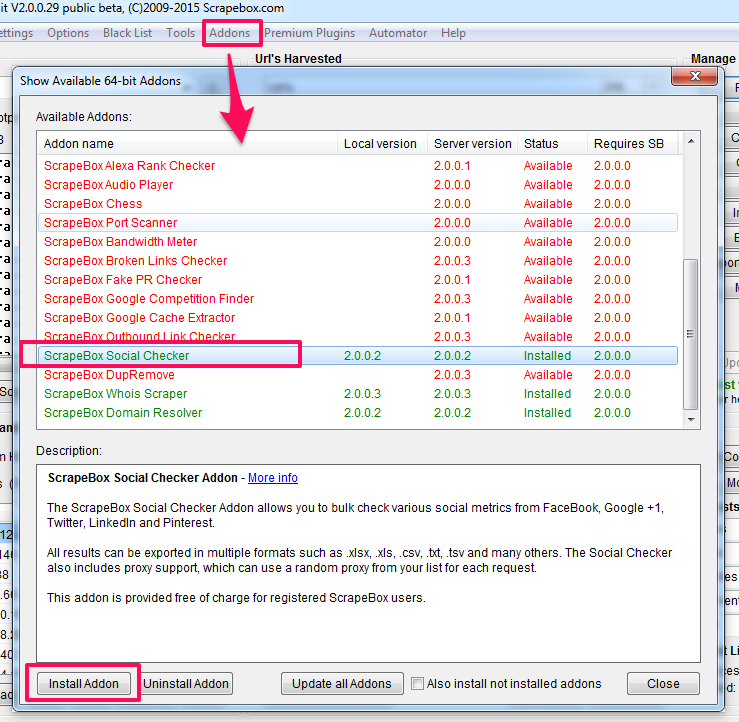
Subsequently, searching, or querying, the catalogs for particular word combinations uses the master index as well as word lists and shadow indexes to execute queries quickly and efficiently. The final step in the indexing process is creation of a catalog that contains a master index (and any temporary word lists and shadow indexes) storing words and their locations within a set of indexed documents. Indexing is the overall process of filtering, creating index entries, and merging them into catalogs. Indexing Service then merges the extracted information into catalogs of indexes for efficient searches.
#Scrapebox rapid indexer windows
Windows 2000 and Microsoft Windows XP supply filters for Microsoft Office files, Hypertext Markup Language (HTML) files, Multipurpose Internet Mail Extension (MIME) messages, and plain-text files. A filter component implements the IFilter interface, which supplies methods to read a file to extract text and properties.

The format could include multi-language features such as international languages and locales. Indexing Service extracts the content by filtering, using filter components that understand a file's format. The files can be simply members of a selected file system or part of a virtual Web hosted by, for example, Internet Information Services (IIS). Indexing Service can extract both text and property information from files on the local host and on remote, networked hosts. Indexing Service is a base service that extracts content from files and constructs an indexed catalog to facilitate efficient and rapid searching.


 0 kommentar(er)
0 kommentar(er)
